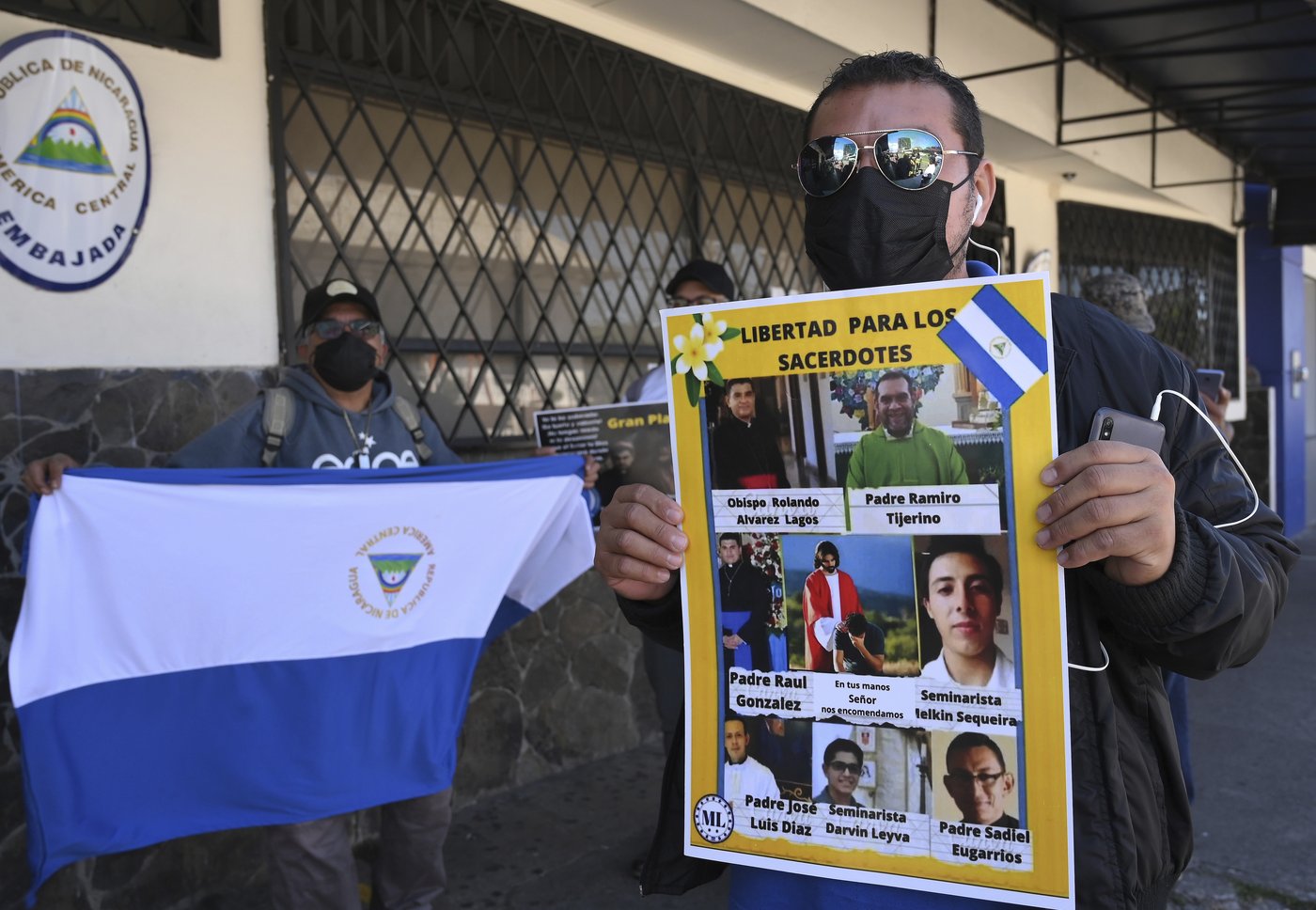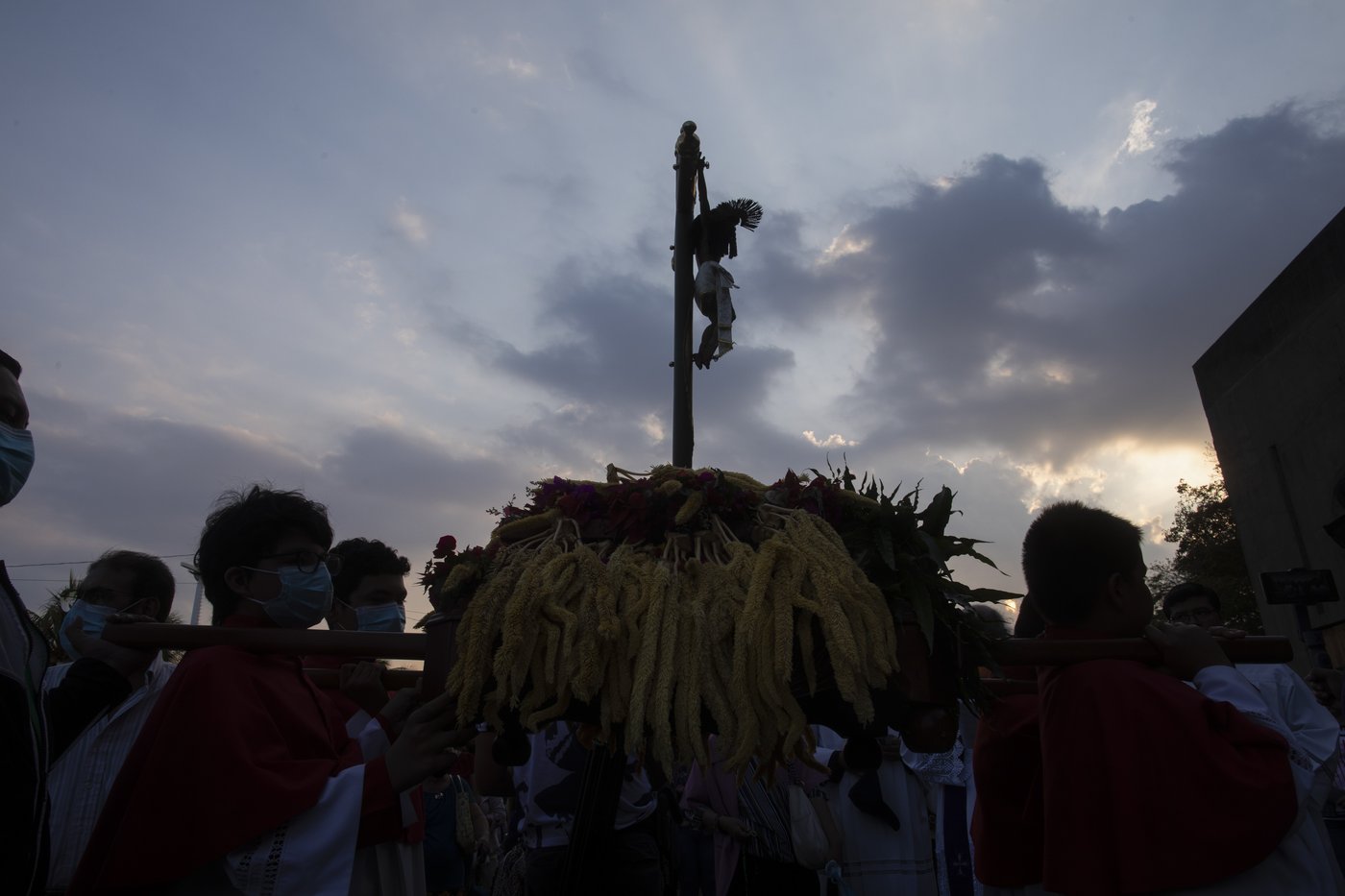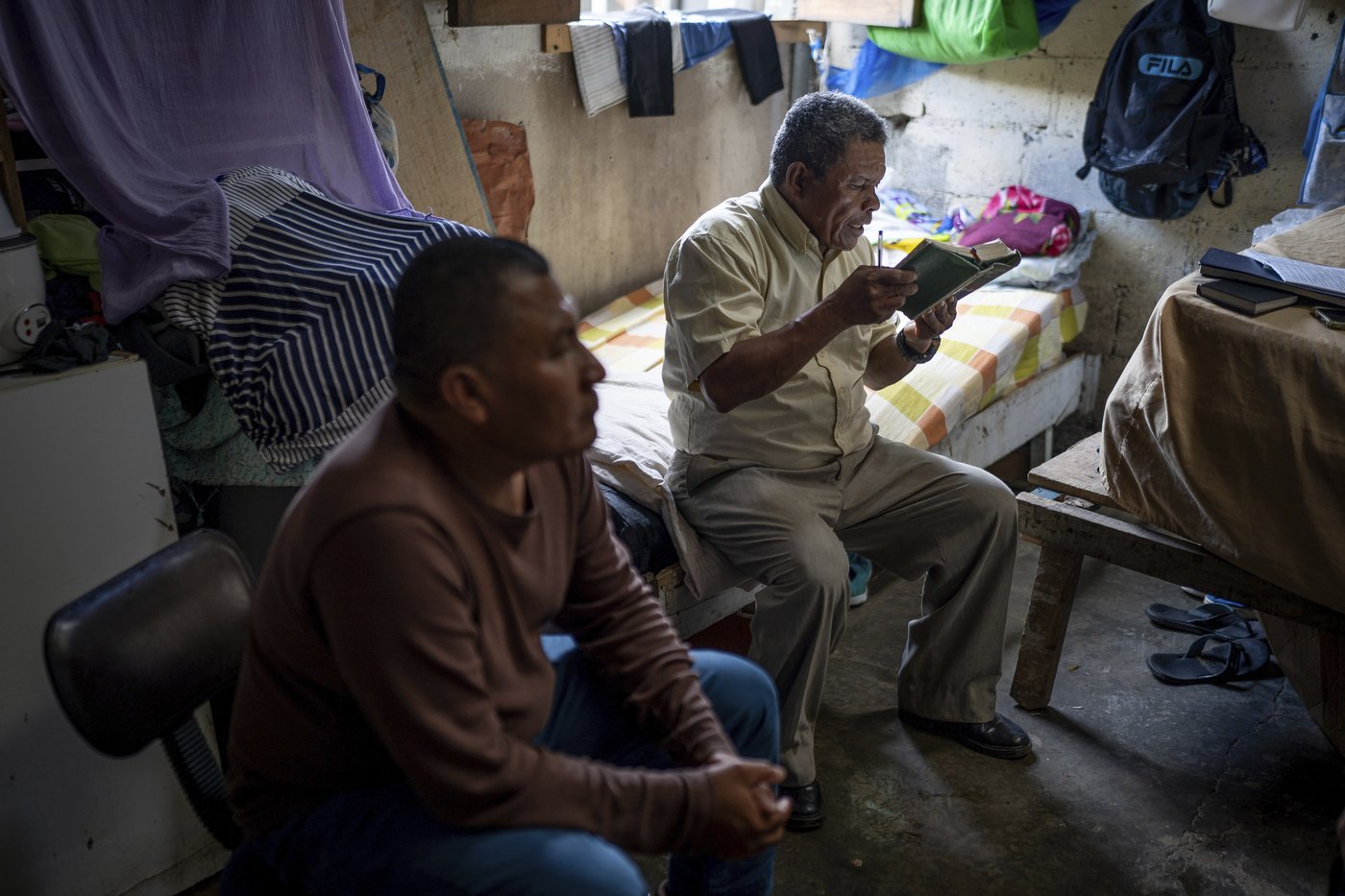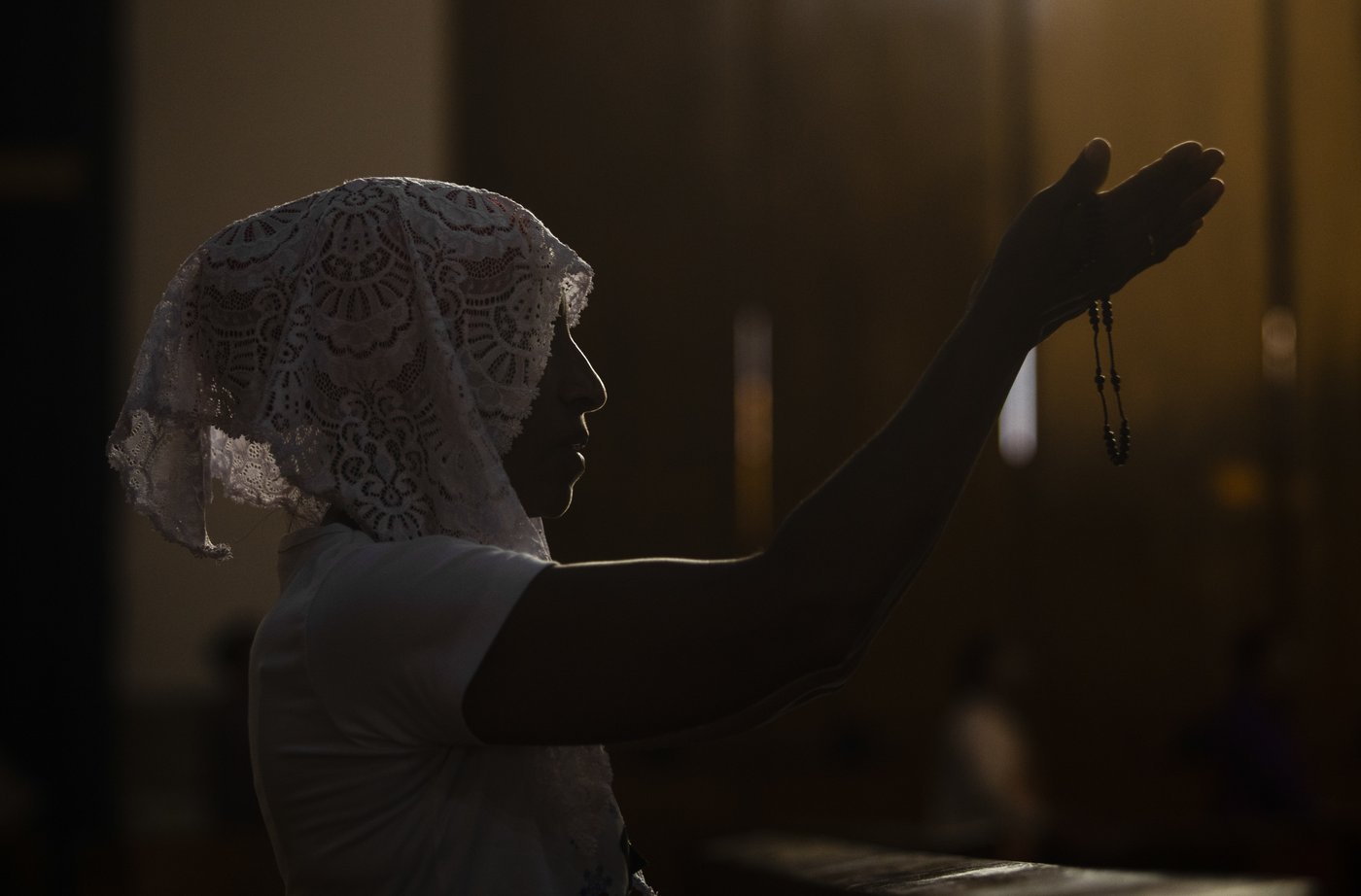
Preparations for the widely observed, typically lengthy Lent period commence. Holy Week processions are happening throughout Latin America — but not in Nicaragua.
For a second consecutive year, they have mostly been prohibited, adding to numerous worries for believers in a nation where human rights activists, exiled clerics, and the American government claim is enforcing one of the globe’s harshest crackdowns. persecutions of religion .

The Associated Press interviewed multiple priests living in exile across various nations, some of whom ended up this way imprisoned in inhumane conditions In Nicaragua, all individuals asked that their names, present locations, and reasons for leaving the Central American nation remain confidential due to concerns about potential retaliation against their families still residing there.

Over 200 clergy members are living in exile, which makes it challenging to conduct Masses or receive confessions in Nicaragua, particularly in smaller towns.
A number of pastors in Nicaragua continue to face constant monitoring, feeling compelled to notify the police when planning visits to sick individuals and required to submit sermon outlines for approval, as reported by people in exile and human rights advocates.
Due to frequent freezes or thefts of their bank accounts, many individuals are now struggling with limited access to essential items like food and medication. A Catholic priest mentioned that he and others in his profession aim to support their congregation despite being hampered by an ever-present sense of danger.
U.S. denounces Nicaragua’s crackdown on religion
The U.S. government has condemned the Nicaraguan government — led by co-presidents Daniel Ortega and his wife, Rosario Murillo — for the crackdown that seems to have intensified in recent years.
On his February trip In the region, Secretary of State Marco Rubio highlighted the Nicaraguan government’s efforts "to eradicate the Catholic Church and the religious community, and those attempting to seize power from that administration face punishment."
In its yearly report released in March, the United States government’s Commission on International Religious Freedom criticized the situation in Nicaragua as "deplorable." Over 80 percent of the populace identifies as Christian, with approximately equal numbers belonging to Catholic and evangelical denominations.
"Religious freedom acts as the canary in the coal mine when it comes to the threat facing all human rights," stated the commission's chair, Stephen Schneck.
The commission discovered that throughout the past year, the Nicaraguan government has been harassing and deporting Catholic clergy members. They also employed "intimidation and manipulation" tactics to pressure Indigenous leaders. Moravian Church They sent individuals from the evangelical Mountain Gateway ministry into exile, detained some of their members, and permitted assaults on churches, which included an act of arson that obliterated a 400-year-old cross in Managua’s capital city.

The commission criticized the "arbitrary" revocation of legal standing for most religious groups, frequently resulting in asset confiscations. It was mandated that all nuns must depart from the nation.
These are the nuns who genuinely look after those who are most impoverished," stated Maureen Ferguson, one of the U.S. commissioners. "What will become of them as these religious organizations, led by individuals driven by their beliefs, face banishment?
Critics argue that the government aims to 'appropriate' religious beliefs.
According to the report, to stop last year’s Easter-time processions, authorities deployed thousands of police officers. Outdoor worship is permitted only for clergies who are "aligned" with the government.
Municipal administrations frequently organize additional celebrations to suggest that public devotion remains unencumbered, according to advocacy organizations such as the UK-based group Christian Solidarity Worldwide.
That's a key aspect of the strategy aimed at winning over both the clergy and their followers, stated Félix Maradiaga, a Nicaraguan opposition figure and observant Catholic who was imprisoned and later released. deported to the United States in 2023.
The Sandinista administration "boasts a lengthy record of attempting to establish an alternative church and seize control of religious symbols," stated Maradiaga, who was barred from public prayer and prohibited from possessing a Bible during his imprisonment. "The blueprint the Sandinistas aim to enforce closely mirrors that of China... They won't cease exerting pressure on the Catholic Church until they secure a bishops' conference somehow compliant with the dictatorship's ideological stance. Their efforts will be fruitless."
Tensions between Nicaragua and religious authorities
Similar to numerous Latin American administrations originating from socialist revolutions, Nicaragua's Sandinista National Liberation Front has experienced a fluctuating dynamic with religious leaders over many years.
The Catholic Church took part in the current government’s ire When clergy members offered refuge and initial medical assistance to individuals wounded during the Ortega administration’s forceful suppression of civil demonstrations in 2018.
The government has attributed "terrorism" to certain clerics who back the civil disturbance. However, both religious leaders and regular observers assert that the church has become one of the few platforms challenging the use of force by authorities.
When the protests began, Maradiaga mentioned that students reached out to him saying, "They're attacking us" – at which point religious leaders opened the doors of their churches.
"What the church did was align itself with those who were facing persecution," Maradiaga remembered.
A number of exiled priests mentioned that they observed young people being injured by gunfire amid the demonstrations and provided care for them, viewing it as crucial to their religious duties to assist those suffering.
Emerging forms of oppression, yet enduring optimism
Martha Patricia Molina, a Nicaraguan attorney who sought refuge in the U.S., documented around 1,000 cases of religious oppression within Nicaragua between 2018 and 2024. Recently noted incidents include detentions and expulsions of priests along with bans on organizing an open-air Via Crucis procession—the traditional Good Friday ritual symbolizing Christ’s journey to Calvary.
"The oppression over the last several months has taken on a new form. Those currently being targeted no longer voice their protests or condemn the injustices, as doing so merely exacerbates the suppression," she stated.
In Nicaragua’s Catholic conference, which comprises eight bishops and one cardinal, four have gone into exile. Additionally, over 150 clergy members and seminarians, alongside almost 100 nuns and religious sisters, either faced expulsion, left for personal safety reasons, or weren't permitted to return to Nicaragua, according to Molina’s tally.
The Vatican reports that Nicaragua has expelled five batches of priests since 2022. primarily to the United States In Rome, including Bishop Rolando Álvarez, who spent over a year in jail before his release and subsequent relocation abroad at the beginning of 2024 following talks with the Vatican.
For the December feast of the Immaculate Conception of Mary, to which Nicaraguans are especially devoted, Pope Francis composed a letter urging them not to question God’s “compassion and benevolence.”
The devoted still go to Mass — though some have started meeting covertly to evade potential government informants who keep track of people attending services, according to Molina and certain clerics.
The anxiety is intense and deeply felt. Since her father passed away recently in the United States, Molina reached out to several priests in Nicaragua, asking if they could perform a Mass for him using his remains.
None was, fearing repercussions for their congregations. She hopes she might one day be able to return to grant her father burial in their homeland.
Several of the clergy in exile said the ability to believe in a different future for their country is one thing they haven’t been forced to leave behind.
___
The Associated Press gets help with its religious news coverage through the AP’s collaboration alongside The Conversation US, supported by funding from Lilly Endowment Inc. The AP holds full responsibility for this content.
Giovanna Dell'Orto, The Associated Press
